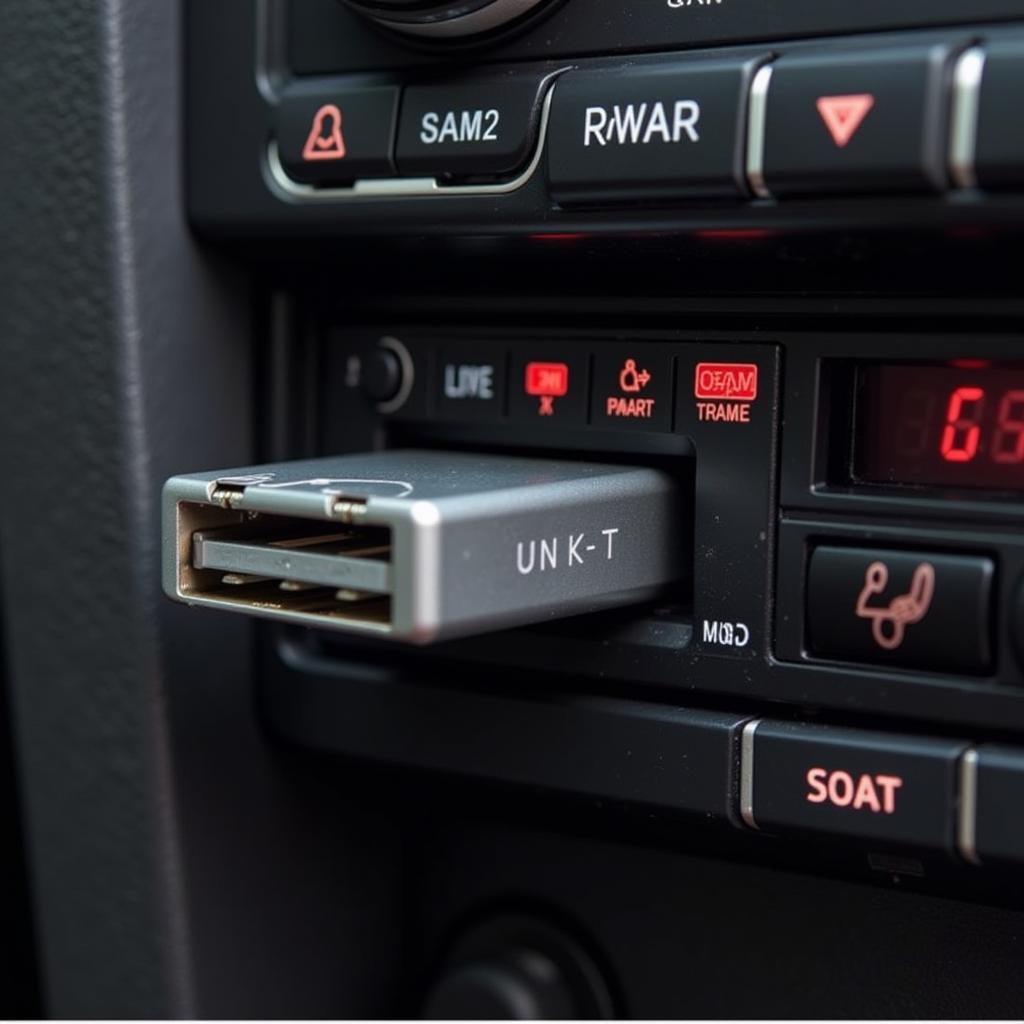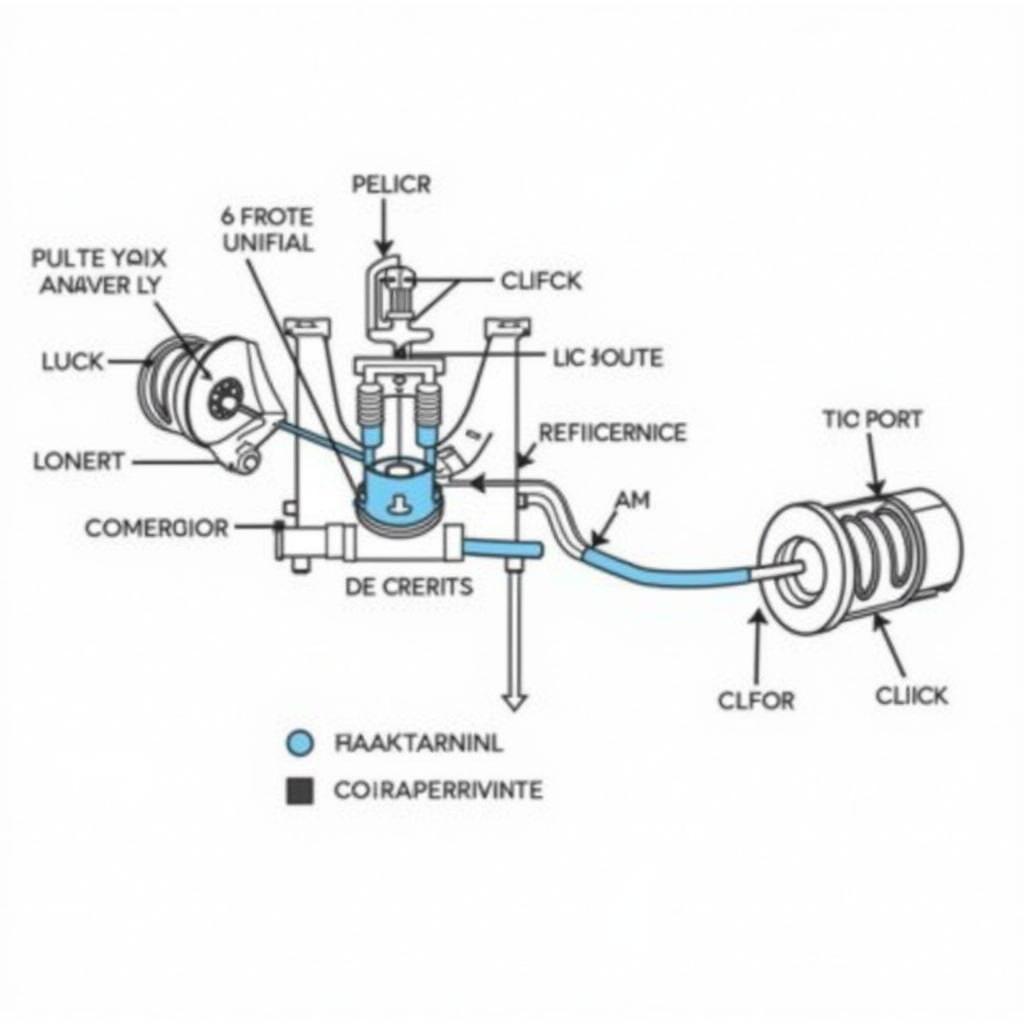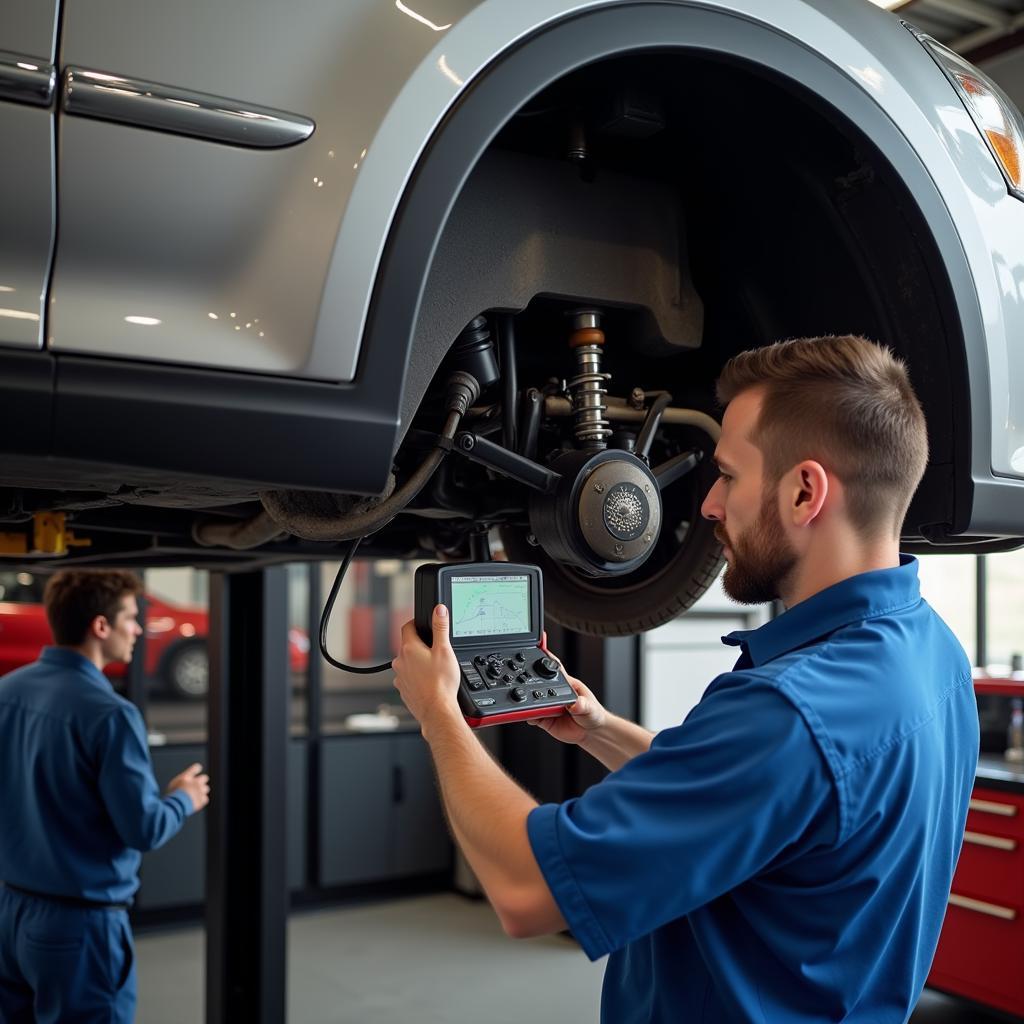A properly working car air conditioner is more than just a luxury, it’s a necessity, especially during scorching summers. But when your car’s AC starts blowing hot air or making strange noises, it can be a real buzzkill. Before you sweat through another commute, let’s dive into how to fix your car air con and get that cool air flowing again.
Common Car Air Con Problems and Their Causes
Before you start taking things apart, it’s crucial to diagnose the problem correctly. Here are some common car AC issues and what usually causes them:
- Weak airflow: This could indicate a clogged cabin air filter, a failing blower motor, or a problem with the blower motor resistor.
- Warm air blowing: If your AC is blowing lukewarm or hot air, the culprit could be a refrigerant leak, a malfunctioning compressor, or a problem with the electrical system.
- AC system not turning on at all: This could be due to a blown fuse, a faulty relay, a bad AC pressure switch, or even a problem with your car’s computer system.
- Strange noises: Clicking, hissing, or grinding sounds coming from your AC system could signal a problem with the compressor, a loose belt, or debris in the system.
- Foul odor: A musty smell coming from your vents usually indicates mold or mildew growth in the evaporator case.
How To Fix Car Air Con: Troubleshooting Tips
While some car AC repairs require professional help, there are a few things you can try to fix yourself:
1. Check and Replace the Cabin Air Filter
The cabin air filter is often overlooked, but it’s an easy fix that can make a big difference. Located behind the glove compartment or under the hood, the cabin air filter traps dust, pollen, and other contaminants from entering your car’s cabin. If it’s clogged, it restricts airflow, leading to weak AC performance. Replacing it is a simple DIY task that can be done in minutes.
2. Inspect the Fuses and Relays
Your car’s AC system relies on fuses and relays to function correctly. If a fuse blows or a relay fails, the AC system may not turn on at all. Refer to your owner’s manual to locate the fuse box and identify the correct fuses and relays for the AC system. Inspect them visually for any signs of damage or burning. If you find a blown fuse, replace it with a new one of the same amperage.
3. Charge the AC System with Refrigerant
If your AC is blowing lukewarm air, the most likely culprit is a low refrigerant level. Over time, refrigerant can leak out of the system, leading to poor cooling performance. You can purchase an AC recharge kit from an auto parts store and attempt to recharge the system yourself. However, be aware that this is only a temporary solution if you have a leak. It’s important to find and fix the leak before recharging the system permanently.
Important: Handling refrigerant can be dangerous. If you’re not comfortable working with it, it’s best to take your car to a professional.
4. Clean the AC Condenser
Located at the front of your car, the AC condenser can get clogged with dirt, debris, and insects, restricting airflow and reducing cooling efficiency. You can try cleaning the condenser yourself using a garden hose and a soft brush. However, be careful not to damage the delicate fins.
When to Seek Professional Help
While some car AC issues can be addressed with DIY fixes, others require professional expertise. Here are some signs it’s time to call a mechanic:
- You suspect a refrigerant leak: Refrigerant leaks can be tricky to find and require specialized equipment to repair.
- The compressor is not engaging: If the compressor clutch is not engaging, it could be a sign of a failing compressor, a complex and expensive repair.
- There are electrical issues: Diagnosing and repairing electrical problems with the AC system requires advanced knowledge and tools.
- You’ve tried DIY fixes, and the problem persists: If you’ve exhausted all the basic troubleshooting steps and your AC is still not working correctly, it’s time to seek professional help.
How Much Does it Cost to Fix Car Air Conditioner?
The cost of car air conditioner repair can vary greatly depending on the nature of the problem, the make and model of your car, and labor costs in your area. Here’s a general idea:
- Refrigerant recharge: $150 – $300
- Cabin air filter replacement: $20 – $50
- AC compressor replacement: $600 – $1,500
- Condenser replacement: $300 – $700
- Evaporator replacement: $800 – $1,500
Keep in mind that these are just estimates. For a more accurate cost estimate, it’s always best to get a quote from a qualified mechanic. Learn more about how much it cost to fix car air conditioner and what factors can impact the cost.
Preventing Future Car AC Problems
Prevention is key to avoiding costly car AC repairs down the road. Here are some tips to keep your AC running smoothly:
- Regularly service your AC system: Have your car’s AC system inspected and serviced by a qualified mechanic at least once a year, preferably in the spring before the hot weather hits.
- Run your AC regularly, even in winter: Running your AC system for a few minutes every month, even during the winter, helps keep the seals lubricated and prevents refrigerant leaks.
- Park your car in the shade: Parking your car in the shade whenever possible can help keep the interior cooler and reduce the strain on your AC system.
- Keep your car clean: Regularly clean the exterior of your car, including the front grille where the AC condenser is located. This will help prevent debris from clogging the condenser and reducing cooling efficiency.
FAQs About Car AC Repair
Q: How often should I recharge my car AC?
A: Ideally, you should never have to recharge your car AC if there are no leaks. However, small leaks can develop over time, and it’s generally a good idea to have your AC system checked for leaks and recharged every 2-3 years.
Q: Can I use any refrigerant to recharge my car AC?
A: No, using the wrong type of refrigerant can damage your AC system. Refer to your owner’s manual or the sticker under the hood to determine the correct type of refrigerant for your vehicle.
Q: Can I drive my car if the AC is not working?
A: Yes, you can drive your car if the AC is not working. However, it can be uncomfortable, especially during hot weather. Additionally, if the problem is related to the engine cooling system, driving without a functioning AC could lead to overheating.
Q: How can I tell if my car AC compressor is bad?
A: Common signs of a bad AC compressor include loud noises coming from the compressor, the AC clutch not engaging, or the AC blowing warm air despite a full refrigerant charge.
Q: How long does it take to fix a car air con?
A: The repair time can vary greatly depending on the issue. Simple repairs like recharging the refrigerant or replacing the cabin air filter can be done in less than an hour. However, more complex repairs like replacing the compressor or condenser can take several hours or even days.
Need Help Fixing Your Car Air Con? We Can Help!
A malfunctioning car AC system can make driving a chore. But with the right knowledge and a bit of troubleshooting, you can often identify and even fix some common issues yourself.
If you’re dealing with a more complex problem or simply don’t feel comfortable tackling AC repairs yourself, don’t hesitate to seek professional help. Contact AutoTipPro today at +1 (641) 206-8880 or visit our office located at 500 N St Mary’s St, San Antonio, TX 78205, United States. Our team of experienced technicians is here to help you diagnose and fix any car AC issue, ensuring you stay cool and comfortable on the road.







Leave a Reply